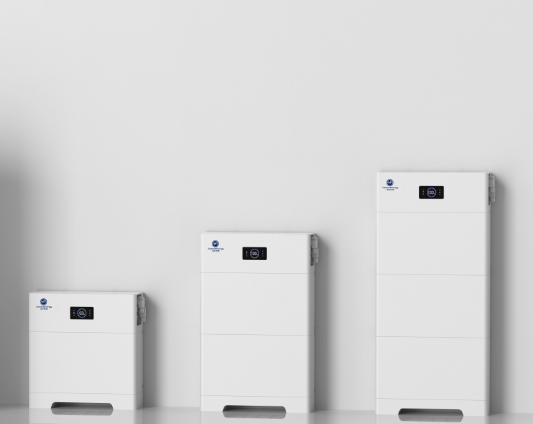Advantages of Residential Energy Storage: Self-Sufficiency and Cost Savings
In recent years, there has been a growing interest in residential energy storage systems as homeowners increasingly seek ways to become more self-sufficient, environmentally conscious, and financially savvy. Residential energy storage, also known as home battery systems, allows homeowners to store excess electricity generated by renewable energy sources like solar panels. This stored energy can be used later when energy demand is high or when the sun isn't shining, resulting in several compelling advantages. In this comprehensive article, we will explore the benefits of residential energy storage, focusing on self-sufficiency and cost savings.

Energy Independence and Self-Sufficiency
One of the primary advantages of residential energy storage is the achievement of greater energy independence. By investing in a home battery system, homeowners can store surplus energy generated during periods of low electricity demand. This stored energy can then be used during peak hours or when the energy grid faces disruptions or outages.
a. Mitigating Grid Outages
Energy grid outages are not uncommon, and they can disrupt daily life, especially during extreme weather events. With a residential energy storage system in place, homeowners can keep critical appliances running, such as refrigerators, lights, and even medical equipment, during power outages. This level of preparedness can provide peace of mind and ensure that essential functions continue uninterrupted.
b. Load Shifting for Cost Optimization
Electricity prices often fluctuate throughout the day, with higher rates during peak hours when demand is at its highest. With an energy storage system, homeowners can shift their electricity usage to times when electricity rates are lower. They can charge the battery during off-peak hours when electricity is cheaper and use the stored energy during peak hours, effectively reducing their electricity bills.
c. Maximizing Solar Power Consumption
For homeowners with solar panels, a home battery system is an excellent complement. Solar energy production is highest during the day, while energy demand is typically lower. By storing excess solar energy in the battery, homeowners can make the most of their renewable energy investment and reduce reliance on grid-supplied electricity during the evening or on cloudy days.
Environmental Benefits: Clean Energy Promotion
Residential energy storage not only benefits homeowners but also contributes to a cleaner and greener environment. The integration of home battery systems with renewable energy sources, such as solar and wind, reduces dependence on fossil fuels, which are major contributors to greenhouse gas emissions.
Reducing Carbon Footprint
Generating electricity from traditional fossil fuels releases harmful greenhouse gases into the atmosphere, contributing to global warming and climate change. By adopting residential energy storage and utilizing more renewable energy, homeowners can significantly reduce their carbon footprint and actively contribute to a cleaner environment.
Smoothing Renewable Energy Supply
Renewable energy sources, such as solar and wind, are intermittent by nature. Energy storage systems help smooth out the variability of these sources by storing excess energy when it's abundant and releasing it when demand is high or when renewable generation is low. This ensures a more stable and reliable energy supply.
Financial Savings and Return on Investment (ROI)
Despite the initial investment required for installing a residential energy storage battery, homeowners can reap long-term financial benefits, making it a smart investment with an attractive ROI.
a. Lowering Electricity Bills
By storing excess energy and using it during peak hours, homeowners can reduce their reliance on grid-supplied electricity, leading to lower electricity bills. Depending on electricity rates and the size of the energy storage system, the savings can be significant over time.
b. Incentives and Tax Credits
Various governments and local authorities offer incentives, rebates, and tax credits to encourage the adoption of renewable energy and energy storage systems. These financial incentives can offset a portion of the initial investment, making the transition to residential energy storage more affordable.
c. Increased Property Value
Residential energy storage systems add value to a property. As sustainable and eco-friendly features gain popularity among homebuyers, having an energy storage system in place can make a property more attractive and potentially increase its resale value.
Conclusion
Residential energy storage systems present numerous advantages, ranging from enhanced energy self-sufficiency and cost savings to contributing to a cleaner environment. With the world's increasing focus on sustainability and reducing carbon emissions, the adoption of home battery systems is a step towards a greener and more resilient future.
Investing in a residential energy storage system allows homeowners to take control of their energy usage, reduce their carbon footprint, and protect themselves from power outages. Moreover, the financial benefits and potential ROI make it a sensible long-term investment for environmentally conscious homeowners.
- 0



